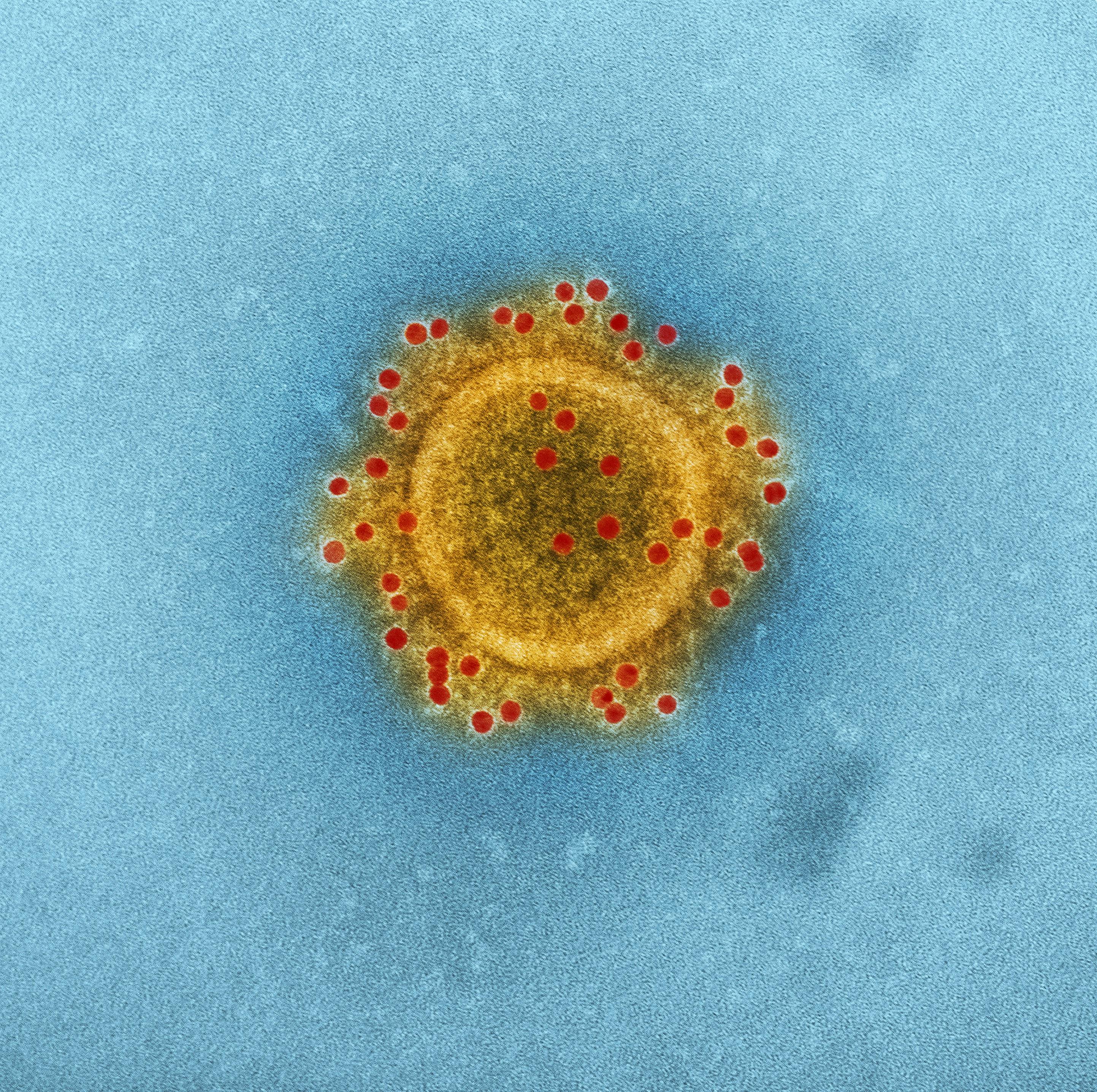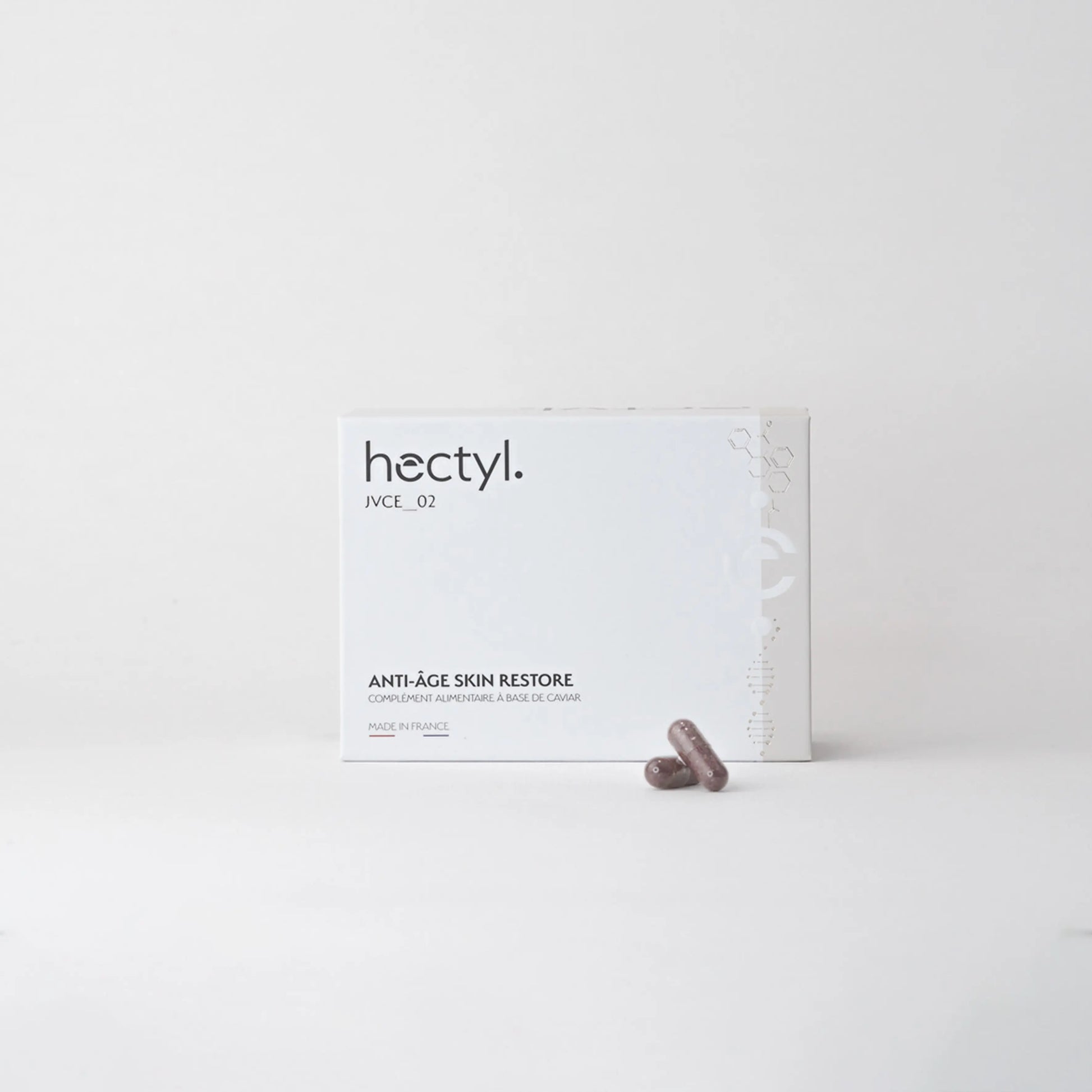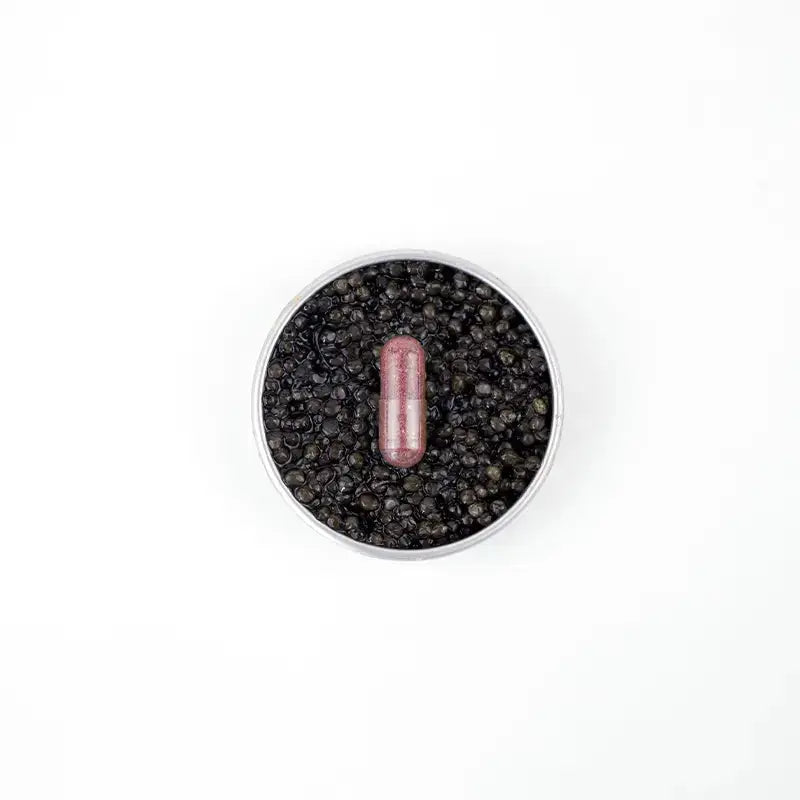
ingredient sheet
WISTERIA
Glycine, an essential amino acid, is known for its multiple benefits for the skin, playing a crucial role in collagen synthesis, regulating skin hydration and promoting cellular health, thus contributing to radiant and revitalized skin.
HECTYL INFORMS YOU
THE BENEFITS OF GLYCINE

ANTI-WRINKLE
Glycine plays a crucial role in stimulating the production of collagen, an essential protein naturally present in the human body. With advancing age, collagen production declines, leading to a loss of skin firmness and elasticity. By promoting collagen synthesis, glycine helps restore skin firmness and stimulate skin tissue regeneration. This makes it a valuable ally in the fight against the signs of aging, such as age spots, by improving overall skin quality.
ANTIOXIDANT
Glycine has a positive effect on antioxidant enzymes, which helps slow down cellular aging. Among the body's essential antioxidant defenses against free radical damage, glutathione is particularly powerful. It is composed of three amino acids: glycine, cysteine, and glutamic acid.
Recent research has shown that when glycine is insufficient, glutathione production decreases. Since glycine levels tend to naturally decline with age and in certain pathological conditions, maintaining adequate levels is crucial to preserve cellular and overall health.
NEUROTRANSMITTER
Glycine plays a vital role as an inhibitory neurotransmitter in the spinal cord.
MUSCLE RECOVERY
It plays a role in the metabolism of creatine,
glycine therefore participates in muscle recovery.
ANTI-INFLAMATORY
Glycine supplementation has been shown to be effective in the treatment of several diseases, including cardiovascular and respiratory diseases of inflammatory origin. Its beneficial action on inflammation and its role in modulating metabolism make it a potentially useful agent in the management and treatment of these pathological conditions.
METABOLIC BALANCE
Glycine plays a crucial role in various pathological conditions such as obesity, diabetes, and hypertension, where its levels are often low. By helping the body better regulate sugar intake, glycine contributes to maintaining a balanced metabolism. Furthermore, it appears capable of correcting metabolic imbalances when they occur.
DETOXIFYING
Glycine has a detoxifying action on the
liver since it participates in the synthesis of bile acids.
QUALITY SLEEP
Glycine also exerts a beneficial influence on the brain by acting as a calming neurotransmitter that promotes sleep. It helps regulate the ratio between time spent in bed and time actually spent asleep. Studies have shown that glycine can reduce the time it takes to fall asleep, decrease daytime sleepiness, and improve performance on memory tests.
By acting on inhibitory receptors in the brain, particularly NMDA receptors, glycine has calming effects that promote better sleep. This property makes it a potentially useful supplement for improving sleep quality and treating certain sleep-related disorders, although more research is needed to confirm its effectiveness in these areas.
COLLAGEN BOOST
Glycine is a major component of collagen, an essential structural protein found abundantly in skin, bones, tendons, and cartilage. Collagen is responsible for the firmness, strength, and elasticity of these tissues.
EPIDERMAL YOUTH
Effects on Skin: A study led by Jong Il Park of Kyung Hee University explored the effects of glycine combined with leucine on skin cells. They discovered that this duo promotes the production of hyaluronic acid by keratinocytes, a crucial component for skin hydration. Additionally, glycine and leucine have been shown to reduce the activity of elastase, an enzyme that breaks down elastin, another protein important for skin suppleness and elasticity. By reducing this activity, these amino acids may help maintain youthful, vibrant skin by limiting the effects of aging and inflammation.
Anti-aging and longevity effects: Glycine may play a broader role in promoting longevity by counteracting the potentially toxic effects of other amino acids like methionine. This ability may help increase lifespan by minimizing the effects of oxidative stress and promoting optimal metabolic balance.
Collapsible content
ADDITIONAL INFORMATION +
Glycine is one of the twenty amino acids used for protein synthesis in the human body. Classified as a non-essential amino acid, it can be produced by the body from other compounds. Glycine plays a crucial role in many metabolic processes, including as a neurotransmitter, detoxifier, and component of hemoglobin.
Despite its internal production, dietary glycine intake is often insufficient to meet our daily needs. It is primarily found in animal products, but rarely in muscle. Researchers estimate that a 70 kg adult may need about 10 g of glycine per day, classifying it as a semi-essential amino acid, requiring additional intake through diet or supplementation.
Due to its many benefits to the body and the frequency of glycine deficiency, supplementation is often recommended to achieve adequate levels, generally between 8 and 15 g per day. Glycine is considered non-toxic, and there are no known safe limits for its consumption. However, it is advisable to adhere to the recommended doses to avoid any risk of complications.
It is also important to note that glycine may interact with certain medications such as hypnotics, anxiolytics, antidepressants, neuroleptics, and antiepileptics. Patients taking these medications should consult their doctor before initiating glycine treatment.
Finally, unlike other products that can be certified organic, glycine cannot be organic because it is a synthesized amino acid and is therefore not subject to organic farming regulations. It is therefore recommended to be vigilant to avoid fraud when purchasing products claiming to be "organic glycine."
Hectyl ingredients
Hectyl formulas, reliable solutions based on patented ingredients and benefits supported by scientific studies.
Hectyl formulas containing Glycine :

Hectyl
Jouvence_02 – Anti-Aging Skin Restore
Share




